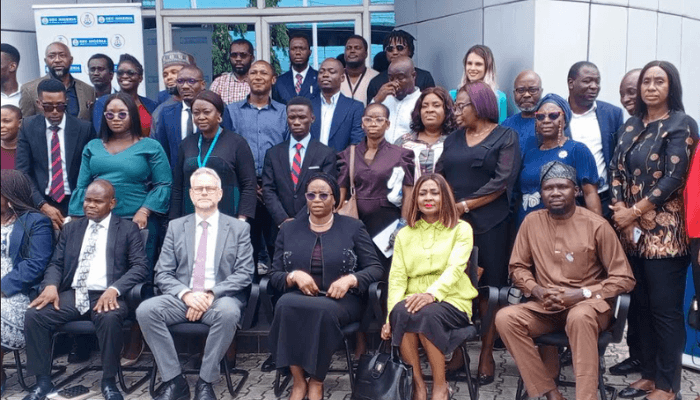Nigeria’s Securities and Exchange Commission (SEC) on Tuesday said that it has registered three crowd-funding platforms, with three additional applications currently under review to help enhance the country’s financing landscape for small business operators.
Emomotimi Agama, acting director-general of SEC, made this known at a stakeholder’s dialogue on crowdfunding as a tool for strengthening Micro, Small and Medium Enterprises (MSME) finance and investment in Nigeria.
The dialogue held in collaboration with the Sustainable and Inclusive Economic Development for Decent Employment in Nigeria Programme (SEDIN) is aimed at presenting stakeholders with recent assessment findings on crowdfunding to strengthen MSME finance and investment, with a specific emphasis on engaging SEC.
Agama, who was represented by Abdulkadri Abbas, director in charge of registration, exchanges, market infrastructure, and innovation at SEC in his speech said that the registered platforms had already begun to make significant contributions to the MSME financing landscape by facilitating the raising of funds for various projects.
According to him, the operators have so far been able to source close to a billion naira through crowdfunding framework within a short period.
Agama noted that this underscores the commitment of the commission to fostering innovation and providing alternative funding options for MSMEs while ensuring regulatory compliance.
He disclosed that the commission has created an enabling regulatory environment for fund seekers, and intermediaries to leverage to do a transparent and well-regulated transaction.
“The importance of MSMEs to the economy cannot be overstated. They serve as the backbone of the economy and make huge contributions to our GDP.”
“MSMEs foster innovation and create vast employment opportunities and livelihoods for most citizens.”
However, he revealed that the immediate challenge of crowdfunding in the country is a lack of knowledge of how it works, and the roles of the different parties involved.
“If you are a fund seeker, you’re not an intermediary, and to bridge the gap, there is a critical need to create more awareness, and capacity building is an issue on all sides,” he noted.
He applauded GIZ/SEDIN and other partners for their effective collaboration in seeing that the crowdfunding dialogue comes to fruition.
Also, Elizabeth Howard, the chief executive officer of the African Crowdfunding Association (ACfA), urged the SEC to design regulations for investment crowdfunders so that the guidelines can work and be adopted by stakeholders.
“We needed to have another look at regulations in Nigeria and say how we can do better,” she said.
“The regulations must take into account not only the crowdfunding platform but the whole early-stage finance and investment ecosystem.
From incubators, accelerators to angel networks, emerging fund managers and emerging investment vehicle managers, donor-funded community and community to retail investors and diaspora investors,” she advised.
Howard explained that unless the business models of all of those players in this ecosystem are not deeply understood by the regulator, then the design of the regulatory framework will be incomplete and it will not be adopted in a way that will move the dial for SMEs access to finance and startup access.
Markus Wauschuhn, the head of programme at GIZ/SEDIN said the dialogue is expedient because crowdfunding though has incredible potential, comes with a lot of challenges, which is one of the reasons for the event.
“Crowdfunding faces a lot of problems such as regulations and financing, and non-compliance of some stakeholders. However, we need a balance, and this is what the dialogue is all about,” he said.
Over 70 key representatives from the SEC, government officials, financial institutions, crowdfunding platforms, MSME owners, investors, regulatory bodies, academia, research institutions, and media professionals participated in the dialogue.



